I‘ve always hated New Year’s Eve.
As a kid growing up under the Cold War threat of nuclear annihilation, New Year’s seemed like a perfect time for the Russians to launch a Red Dawn-style invasion or a sneak attack with nukes. Eighties-era films like The Day After, Testament and War Games probably didn’t help my angst.
As I grew older, the disdain for New Year’s grew from invitations to parties I sometimes didn’t want to go to. If I did attend, I encountered amateur drinkers who got hammered once a year and were almost always insufferable.
And then there is the worst of the New Year’s Eve revelers: the irrational optimist.
We all know these people. They’re the ones who proclaim loudly on social media, “This is going to be the year of me!” or some variation on that theme.
I’ve never understood the need to tempt fate. My annual New Year’s mantra is a pedestrian, “I just hope it goes OK.”
But every year people embrace optimism. We saw that at the end of 2020, when many declared that 2020 was so bad that 2021 had to be better. On a personal level, this is possible. A job promotion. The birth of a child. A bucket-list travel destination checked off. All of those things can make a person’s year.
From a 30,000 foot view, however, 2021 was mostly the same shit show as 2020, and arguably worse. Here’s a look back at the way we were on our latest trip around the sun.
January
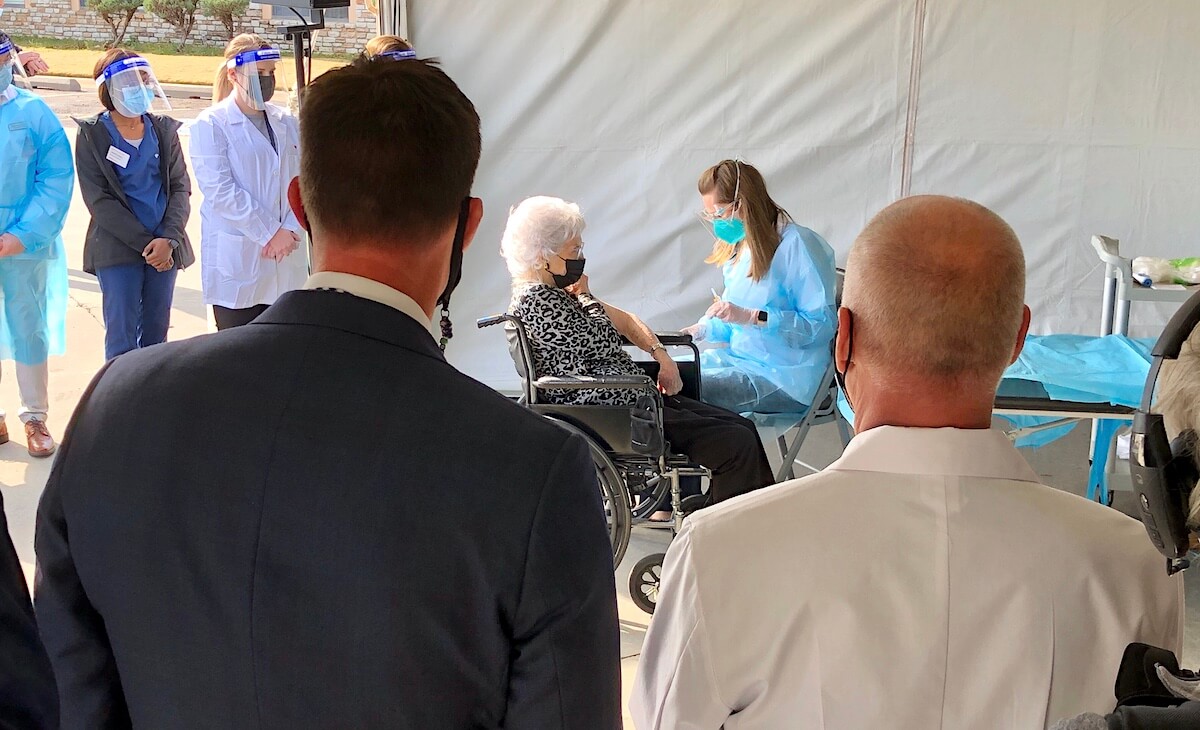
The end of December 2020 and the beginning of January 2021 brought good news for many Oklahomans as coronavirus vaccines continued to be rolled out, allowing seniors 65 and older to get their first jab. Prior to that, the vaccines had been limited to health care workers.
On Jan. 6, a group of insurrectionists stormed the U.S. Capitol building in an effort to disrupt the process of certifying the 2020 election and make sure Donald Trump stayed in the White House. Prior to that event, U.S. Sen. James Lankford supported a challenge to certifying electors based on alleged irregularities, but he changed his position after the Capitol was stormed. Here at NonDoc, Rilla Askew wrote about the assault on the Capitol.
On Jan. 24, less than a week after President Joe Biden took office, the House voted to impeach Donald Trump (again) for his role in the Jan. 6 attack. Oklahoma’s congressional delegation voted against impeachment.
February
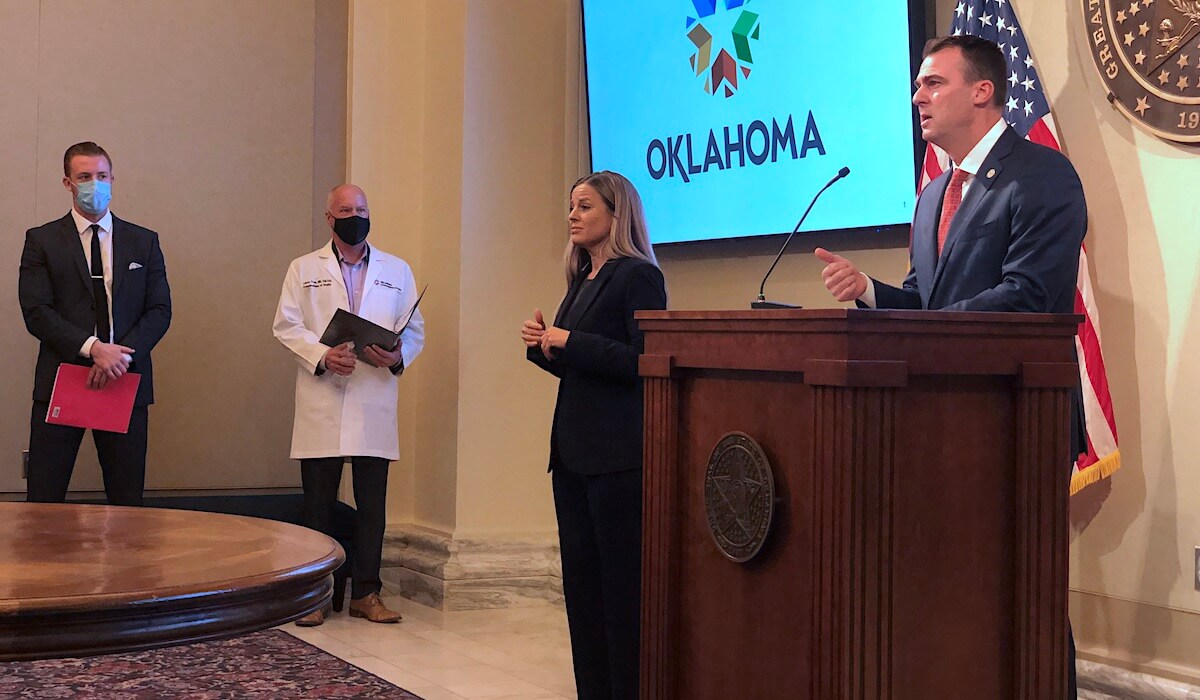
Gov. Kevin Stitt kicked off the annual legislative session by delivering his State of the State address Feb. 1, outlining his priorities for 2021. In his remarks, Stitt said the state was in good shape for the year ahead.
“The state of our state is strong because we are resilient and well-positioned for a bright future,” Stitt said. “(…) The pandemic isn’t over — but we can see the light at the end of the tunnel. As Will Rogers once said, ‘Don’t let yesterday use up too much of today.'”
Unfortunately, that optimism was misplaced. Oklahoma has the highest per capita death rate from the coronavirus in the country, according to one report. Since the pandemic began, the state has seen 11,503 deaths (as of Dec. 28). More than half of that total came in 2021.
The state was hammered in February by a historic winter storm that led to dramatically inflated natural gas and utility prices. Lawmakers promised action on the issue. To read more about how the 2021 legislative session unfolded, check out our History of The Oklahoma Legislature page.
March
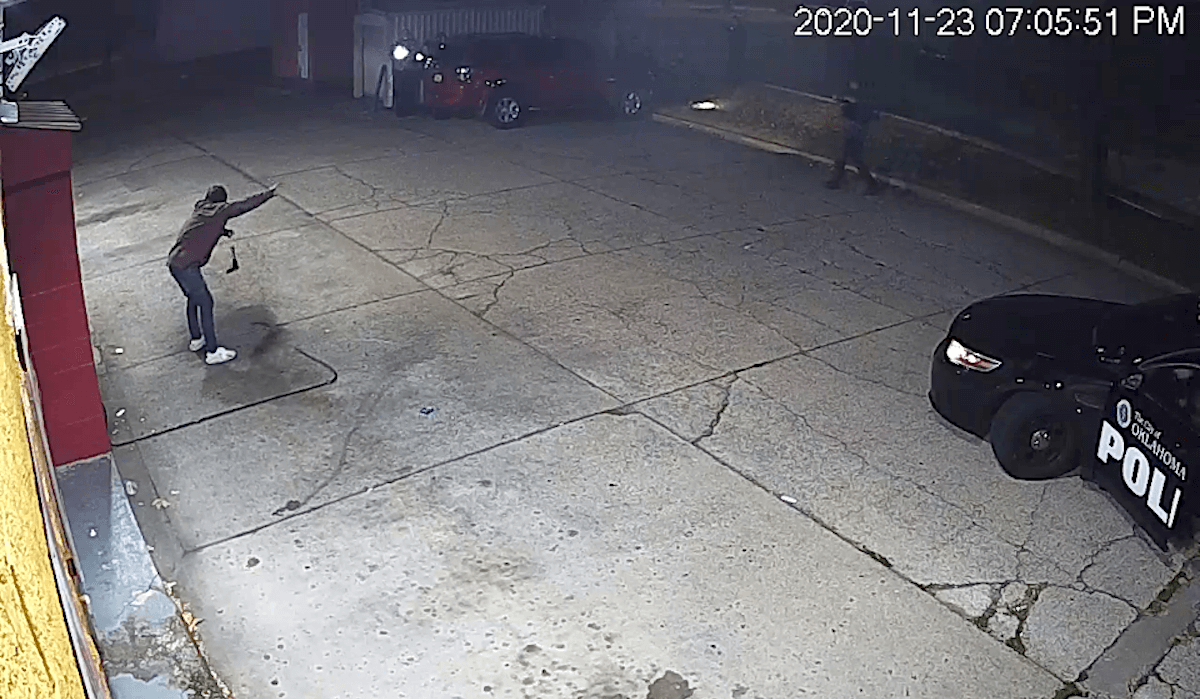
On March 10, Oklahoma County District Attorney David Prater charged five Oklahoma City Police Department officers with first-degree manslaughter in connection with the shooting death of 15-year-old Stavian Rodriguez in 2020. Rodriguez was shot and killed after robbing a convenience store in Oklahoma City, though many believe he was no threat to officers when he was shot.
The charges came just two weeks after Prater charged another OKCPD officer in the death of Bennie Edwards in December 2020.
Prater made news again on March 11 when he sued Stitt and the Oklahoma Pardon and Parole Board, seeking an injunction to stop the the board from considering commutation requests it adhered to statutory and constitutional requirements Prater says the board has been violating. The Oklahoma Supreme Court dismissed Prater’s lawsuit in September.
The month ended on a violent note as Oklahoma County jail inmate Curtis Williams, 34, was shot dead by Oklahoma City Police after he took a jail employee hostage on March 27. It would be among the first of 15 deaths connected to the jail in 2021.
April

An Okmulgee County judge halted the Oklahoma Medical Marijuana Authority’s seed-to-sale program to track marijuana plants. The ruling would put the kibosh on the program for the rest of the year.
Oklahoma City’s mask ordinance expired April 30 after a majority on the City Council decided it was no longer necessary. Mayor David Holt told The Oklahoman that the measure lacked the support needed to keep it in place. When cases and hospitalizations surged in late August owing to the rise of the Delta variant, an effort to bring the mask ordinance back failed in a heated council meeting, during which Ward 1 Councilman Bradley Carter suggested rising hospitalizations were the result of fear rather than a need for medical attention.
Meanwhile, state-tribal tensions flared over highway projects after Stitt took issue with a proposed I-35 offramp dedicated for the Chickasaw Nation’s Riverwind Casino parking lot.
May

On May 26, Oklahoma Attorney General Mike Hunter abruptly announced his resignation. The news came just days after he filed for divorce from his wife of 40 years, but questions about his decision to resign lingered after Hunter dropped a criminal indictment against then-Secretary of Digital Transformation David Ostrowe, who subsequently alleged that Hunter used the state’s multi-county grand jury to target him for political purposes.
“It has been a distinct and absolute privilege of a lifetime to serve as the state’s attorney general,” Hunter said in a statement about his resignation. “Regrettably, certain personal matters that are becoming public will become a distraction for this office. The office of attorney general is one of the most important positions in state government. I cannot allow a personal issue to overshadow the vital work the attorneys, agents and support staff do on behalf of Oklahomans.”
On May 31, the state marked 100 years that have passed since the Tulsa Race Massacre. The anniversary included a variety of events and an attempt to excavate a potential mass grave associated with the massacre.
June
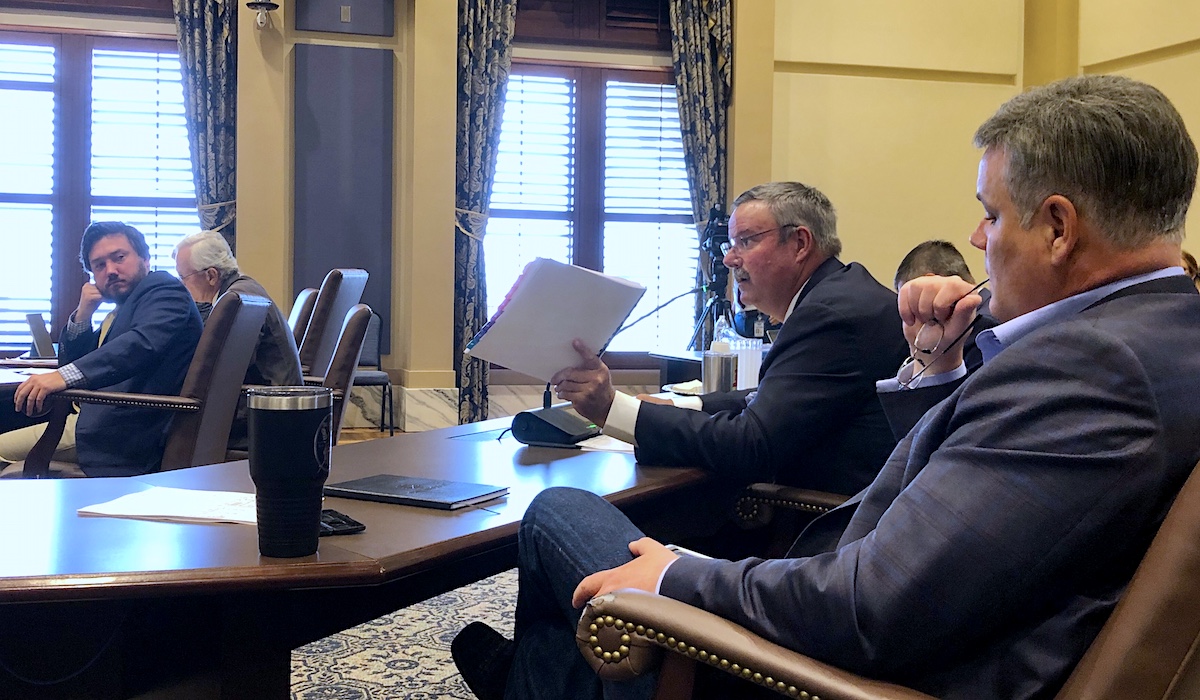
In a blow to Gov. Kevin Stitt, the Oklahoma Supreme Court struck down his plan to move part of the state’s Medicaid program to a managed care model administered through private companies. In a 6-3 decision, justices said there was no explicit or implied legislative authority for the Oklahoma Health Care Authority to implement a wholly new managed care program.
A drunk driver who killed three Moore High School students and injured several more after he plowed into them while they were jogging was found guilty on June 25. Max Townsend, 57, was sentenced to three life terms.
Meanwhile, the Oklahoma Department of Corrections aggravated residents of northwest Oklahoma by announcing it plans to close a prison in Fort Supply.
July
A forum on McGirt with Gov. Kevin Stitt and assorted county district attorneys in Tulsa quickly dissolved into chaos as Stitt and others were shouted down by members of the audience who were mostly native.
“The courts are going to have to overturn this,” Stitt told NonDoc after the event. “For us to have a viable state going forward, we need to overturn McGirt completely.”
On July 23, Stitt selected Tulsa attorney John O’Connor as the state’s new attorney general. O’Connor has pursued legal challenges in an effort to limit or overturn the impact of the McGirt decision.
In a move that may be a fit for the “Be careful what you wish for” file, the University of Oklahoma and the University of Texas fulfilled their fans’ longstanding dreams of leaving the frumpy, broken-down Big 12 and moving into the SEC, where Alabama, LSU and Georgia reside. Results TBD. (The irrational optimism around the move from OU fans reminded me of those early scenes in Civil War movies when all the men are eager to go off and fight, and then they all die or come back with limbs missing.)
August
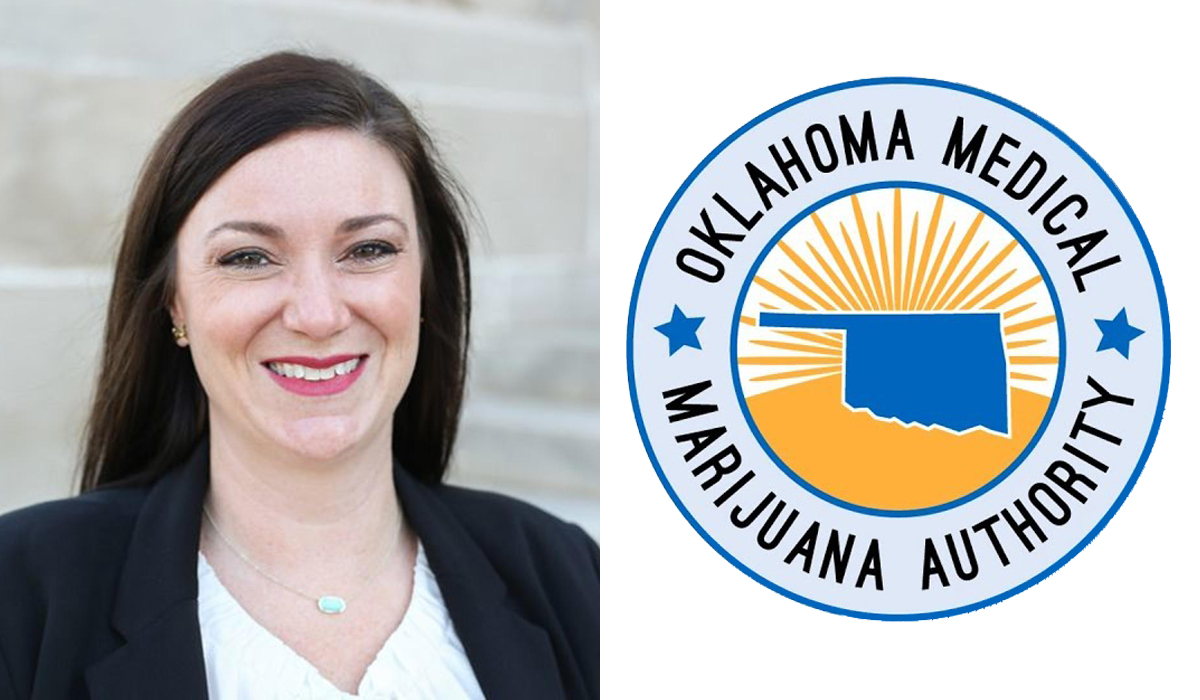
According to U.S. Census Bureau statistics that were finally released, Oklahoma City added about 100,000 residents over the previous decade, which is becoming increasingly apparent when it comes to traffic. OKC was one of about a dozen or so cities that saw that kind of population growth since 2010.
On Aug. 18, Adria Berry was named as the fourth director of the Oklahoma Medical Marijuana Authority since its inception in 2018. Berry replaced Dr. Kelly Williams. She subsequently conducted a Q&A with NonDoc about her vision for the agency.
September

On Sept. 29, Oklahoma County District Attorney David Prater asked and received permission from a judge to impanel a grand jury to examine the operation of the Oklahoma County Jail and the state’s Pardon and Parole Board.
“One purpose for calling an Oklahoma County grand jury is for it to investigate credible allegations that involve official corruption and/or official neglect that are alleged to have been committed by state and/or county officials,” Prater wrote in his application.
Meanwhile, the Oklahoma County Sheriff’s Office implemented a new body camera program, and Allison Garrett was named the first female chancellor of higher education in state history.
October

Thirteen months before the 2022 election, Oklahoma Superintendent of Public Instruction Joy Hofmeister announced her plans to switch her party affiliation to Democrat as part of her gubernatorial campaign to challenge incumbent Gov. Kevin Stitt.
A series of fall tornadoes ripped through the state, causing damage to some homes in Oklahoma City and its suburbs, as well as damage in other parts of the state. All told, the National Weather Service counted 16 twisters in Oklahoma during the week of Oct. 10.
On Oct. 21, Dr. Lance Frye resigned as the Oklahoma commissioner of health, one day after Gov. Kevin Stitt criticized “rogue activists” for entering into a lawsuit settlement that caused the State Department of Health to create a process for amending birth certificates to reflect a nonbinary sex designation.
Oklahoma executed John Grant on Oct. 28 following a 5-3 ruling by the U.S. Supreme Court that vacated a previous stay from a lower court. The execution was Oklahoma’s first in nearly six years. Grant had been on death row for more than 20 years. The resumption of executions ignited conversation around capital punishment and set the stage for a dramatic development in November involving another death-row inmate.
November

By a 5-1 margin, the Oklahoma Supreme Court tossed out a $465 million judgement against Johnson & Johnson that had been awarded in the state’s 2019 opioid trial. In their ruling, the court called the ruling by a lower court “too far” when it came to punishing the company.
On the day of his scheduled execution, Julius Jones saw his death sentence commuted to life in prison without the possibility of parole by Gov. Kevin Stitt. Jones has been in prison for more than 20 years after being convicted of the murder of Edmond resident Paul Howell in 1999. But some raised questions about whether Jones received a fair trial at the time, and those doubts grew into a crescendo of public pressure from all directions imploring Stitt to spare Jones, despite insistence from prosecutors and the Howell family that Jones is guilty. In the end, Stitt spared Jones’ life only a few hours before he was set to die by lethal injection.
Stitt also made news in November when he issued an executive order barring the Oklahoma State Department of Health from issuing gender neutral birth certificates.
A state audit released in November found that more than $250,000 appear to have been misappropriated at Seeworth Academy, a shuttered charter school in OKC. Beyond alleging financial misconduct by Superintendent Janet Grigg, the audit also said that the school’s board, including Oklahoma Court of Civil Appeals Judge Barbara Swinton and Senate Minority Leader Kay Floyd (D-OKC), did not take appropriate action when made aware of the fraud.
On Nov. 29, following a loss to Oklahoma State in the annual Bedlam game, OU football coach Lincoln Riley split for the University of Southern California, leaving Sooner fans in shock and with a lot of hurt feelers. OU would later hire Clemson defensive coordinator Brent Venables to replace Riley.
December
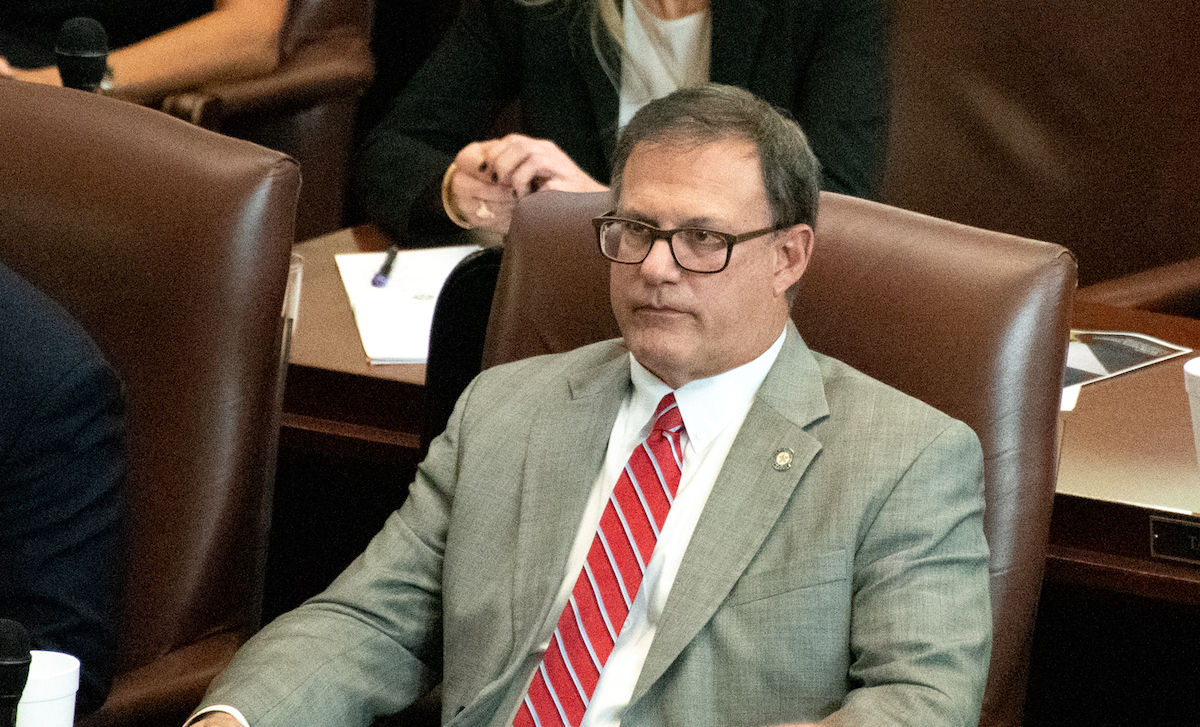
On Dec. 2, Oklahoma County Presiding Judge Ray Elliott announced his retirement effective Feb. 1, 2022. Elliott presided over the trial of pharmacist Jerome Ersland in 2011. He also saw a high rate of turnover during his time as Presiding Judge, at times amid controversy.
Oklahoma County Commissioners voted unanimously Dec. 6 to accept a plan to construct a new Oklahoma County jail to replace the beleaguered facility built in 1991. The $300 million project would include public funding, and could be open for inmates by 2026 or 2027.
On Dec. 17, an Oklahoma County grand jury indicted House Speaker Pro Tempore Terry O’Donnell (R-Catoosa), charging the House of Representatives’ second highest-ranking member and his wife, Teresa O’Donnell, with eight counts related to legislation he supported that allowed her to become a state tag agent.
Meanwhile, the Oklahoma Development Finance Authority authorized the sale of up to $800 million in bonds to purchase and pay off $748.9 million in OG&E ratepayer debt incurred when natural gas prices spiked in February 2021. Some objected to the utility company’s plan.
“It’s unfortunate that 870,000 OG&E customers will be paying for a winter storm bill for 28 years while OG&E profited $224 million last quarter alone,” Sean Voskuhl, AARP Oklahoma director, told NonDoc.
While there were numerous other headlines of note as well, that offers a heavy overview of the year that was 2021. It was a year like most, full of highs, lows and a lot in between. As the champagne begins to chill and we start thinking about 2022, a few things come to mind.
For one, it’s a mid-term election year. Given how smoothly the last big national election went, the autumn of 2022 promises to be a real hoot. And then there’s the pandemic, which shows no signs of abating. Inflation, supply chain problems and rising interest rates could also be a big problem for millions of Americans.
But, hey, 2022 could actually be better. The pandemic could be crushed or at least fade to a dull roar. And maybe, against all odds, Americans won’t take hating each other over politics to a new level. The next 12 months could be a year to remember for all the right reasons.
So make those resolutions and predictions for the coming 365 days. Sing Auld Lang Syne until you’re blue in the face. Raise a glass with hope for the future.
As for me, I just hope it goes OK.






















